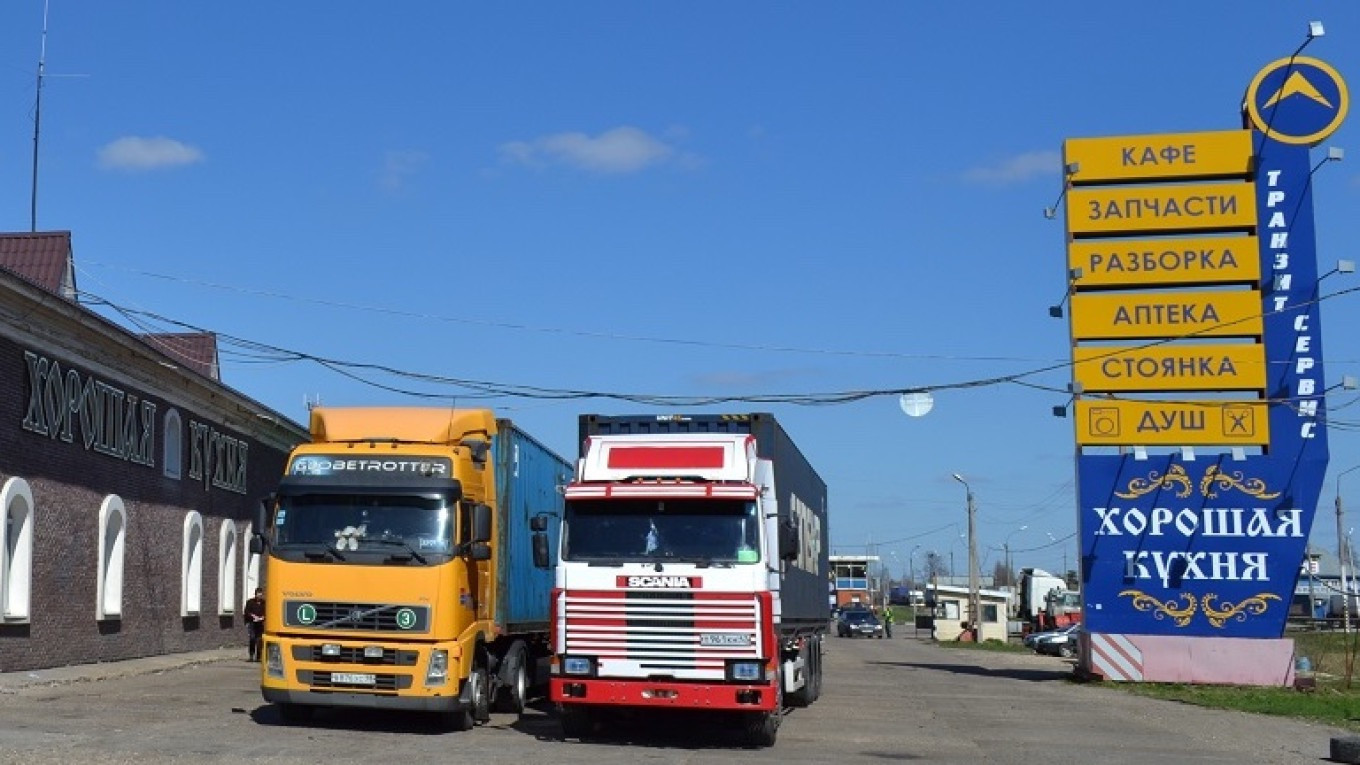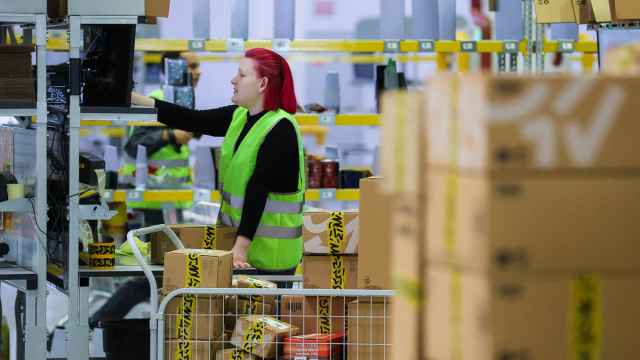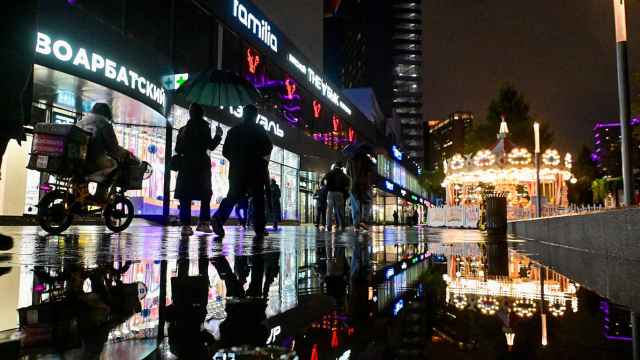Last week, the Kremlin rolled out the message: “VAT saves the budget — everyone must become a savior.”
By making the easiest tax to collect the main revenue source — raising value-added tax from 20% to 22% — officials acknowledged what many already suspected: with the civilian economy shrinking while the military eats an ever-larger share of spending, the state may no longer be able to raise what it needs without squeezing small businesses.
Every day brought new rules about who will now pay VAT after previously being spared: companies on the simplified tax regime with annual income above 10 million rubles (about $123,000); anyone selling imported goods on marketplaces; self-employed people with income above 10 million rubles; and even small brick-and-mortar shops and independent drivers who pay under the patent system, regardless of actual earnings.
I know a man who represents that last category. His name is Sashka and he’s a long-distance trucker.
Sashka and I go back years — before the pandemic, before the war. He used to run loads to Serbia, bringing fruit and other goods back for a small Russian émigré community. Since then, his routes widened to hauling freight across Russia and into Kazakhstan.
He called me after a trip, voice tight with disbelief. “You know everything. Tell me, is it true they’re canceling our status?” he asked.
I told him the truth, perhaps in too much detail: how roughly 40% of state spending now goes to the war, why VAT had to be lifted and expanded, and who would be hit — truckers, corner-store owners, even small sellers on Wildberries.
When the swearing came. It wasn’t the usual roadside profanity. It was a kind of bitter, precise litany — a creative outburst that sketched, in florid terms, what justice would look like for the people who decided to force VAT on drivers like him.
Imposing VAT will prove fatal to entrepreneurs. The simplified tax regime and the patent system — the low-bureaucracy options that let people work on their own — were created for a reason. The authorities know that squeezing small businesses produces loud complaints but relatively little revenue. People on the simplified regime or on a patent can slip into informal work more easily than they can cope with full VAT compliance.
For the tax service, collecting VAT is straightforward; for a one-person enterprise, it’s a nightmare.
VAT requires accounting expertise. Outside Moscow, a competent accountant who understands VAT costs at least 30,000 rubles a month (roughly $370). A long-haul trucker’s net income after expenses typically runs 100-150,000 rubles ($1,230-$1,840). Take out 30,000 rubles for accounting and compliance, add the time lost dealing with audits and trips to the tax office and the margin shrinks fast. If they miss a deadline, reassessments, fines and interest follow. The Finance Ministry is even planning to collect 150% more in fines and penalties next year.
While you’re tied up at the tax office, you’re not on the road. No driving, no pay.
The same math applies to the tiny corner shop in a village — often the only store for miles. The owner will have to close to handle administration, and the community loses a vital service.
Small businesses weren’t invented out of charity. The state always knew they could be pushed into shadow activity if the rules became unbearable. But small businesses make up a vital part of the service economy — from cafés to cobblers — and a buffer against unemployment. When a factory closes or wages lag, people start micro-businesses. That resilience matters.
People buy into that promise. They tell themselves they simply need to try harder. They don’t ask why lawmakers get pensions many times higher than steelworkers, why “efficient managers” earn in a month what an average Russian makes in years. When times get rough, the social script handed out for years is: don’t wait for the state — start a business.
I want to believe the move is a sign of desperation. The Finance Ministry is short of cash, Kremlin demands are soaring and someone decided — however painfully — to squeeze every possible ruble out of the economy. It would be like starving peasants eating seed grain because they cannot stand to watch their children die this winter.
If it isn’t a symptom of despair, it’s deliberate. Breaking small business would be a political choice. Independent entrepreneurs are flexible, locally powerful and not naturally deferential to state authority. They do not depend on state paychecks; they are, in a sense, inconveniently autonomous. That kind of independence necessitates control, from the Kremlin’s perspective.
So the authorities may prefer a population of salaried, compliant workers who live from paycheck to paycheck, who beg rather than demand. Not by chance are the best-paid people today state and municipal officials. The priorities are visible in the paychecks.
What does this mean for people like Sashka?
I had nothing encouraging to tell him. He has a mortgaged apartment, a year left of payments for his truck, two kids at home and a daughter in art school. He has spent his life on the road and does not want to trade it for a low-paid, precarious job. Becoming a company driver usually pays less; employers delay payments and squeeze drivers with fines. Furthermore, as freight volumes are falling, big carriers aren’t doing well either.
Taxi work isn’t attractive: lower pay, more rules — and now extra costs tied to mandated domestic cars. The options keep narrowing.
Still, Sashka is pragmatic. “Don’t freak out,” he told me. “I ran from bandits, negotiated with cops, squeezed money out of crooks. I’ll think of something.” He sounded like someone who has learned to survive by improvisation.
Think of something, Sashka. Make those scoundrels eat their words — that would be justice.
A Message from The Moscow Times:
Dear readers,
We are facing unprecedented challenges. Russia's Prosecutor General's Office has designated The Moscow Times as an "undesirable" organization, criminalizing our work and putting our staff at risk of prosecution. This follows our earlier unjust labeling as a "foreign agent."
These actions are direct attempts to silence independent journalism in Russia. The authorities claim our work "discredits the decisions of the Russian leadership." We see things differently: we strive to provide accurate, unbiased reporting on Russia.
We, the journalists of The Moscow Times, refuse to be silenced. But to continue our work, we need your help.
Your support, no matter how small, makes a world of difference. If you can, please support us monthly starting from just $2. It's quick to set up, and every contribution makes a significant impact.
By supporting The Moscow Times, you're defending open, independent journalism in the face of repression. Thank you for standing with us.
Remind me later.






